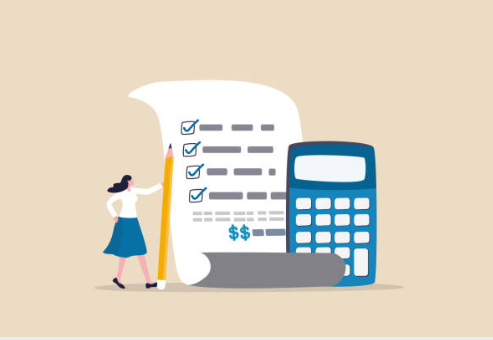Are you aware that 27% of Americans possess less than $1,000 in savings? An even more concerning statistic reveals that 12% have no savings at all. You might be among the countless Americans faced with scant or absent savings, but concern is no longer needed. If you’ve ever felt adrift in a world where financial stability seems like an unattainable dream, the tool you require to navigate these waters and chart a course toward financial success is budgeting.
But what precisely are the purposes of budgeting, and how does one go about it? This article embarks on a journey to demystify the intricacies of budgeting, unveiling its manifold purposes, benefits, and shrewd strategies for economizing and safeguarding your financial future.

What Is Personal Financial Planning?
Like businesses create budgets to ensure efficient money management and prevent exceeding their means, you, too, must possess a budget. Your budget monitors your financial inflow and outflow over a specific weekly or monthly time frame. While a budget can certainly help you cut spending and increase savings, its core function is as a planning and tracking tool.
Budgeting revolves around the notion of deliberate and purposeful financial management. It empowers you to look ahead and prevent unwelcome surprises or unexpected financial hurdles before your next payday. This foresight also ensures you have the funds to realize your future aspirations. Additionally, it enables you to gauge the time required to achieve your objectives.
A personal budget empowers you to allocate money toward your desires. Armed with a well-crafted plan, you’ll be free from guilt or anxiety over whether the cost of something will leave you pinching pennies until your next paycheck. Instead, you’ll know exactly how much you can spend without compromising other essential areas.
The Elements of a Budget
A budget typically consists of two primary components:
- Income: Your revenue encompasses all the earnings you receive, whether from employment, investments, rental income, or any other source. Your income forms the lifeblood of your financial plan, making it crucial to understand your total earnings for effective budgeting.
- Expenses: These represent the various expenditure categories, including housing, food, transportation, entertainment, and debt repayment. Expenses constitute the outflows from your financial reservoir and budgeting aids in their management and control.
Budgeting involves the meticulous analysis of your income and expenses. It establishes clear financial goals and formulates a plan that ensures your income adequately covers your costs while allowing room for savings and investments.
The Goals of Budgeting
Budgeting serves many critical purposes that collectively contribute to your financial well-being and success. Let’s delve into these budgeting purposes in detail:
1. Financial Strategy
The most important point among the reasons for budgeting is the ability to get a financial strategy. At its core, budgeting serves as your clandestine asset for financial planning. It enables you to delineate specific financial objectives and construct a roadmap for their achievement. By outlining your income and expenses, you attain a lucid comprehension of your financial status, empowering you to make informed decisions regarding your financial resources.
2. Financial Management
Budgeting assumes the role of your trustworthy companion when it comes to efficient money management. It grants you financial control by meticulously tracking the sources and destinations of your funds. The propensity to overspend or find yourself in financial straits is considerably higher without a budget.
3. Expense Oversight
A budget serves as your magnifying glass for expense tracking. By categorizing your expenses, you can discern trends and patterns, identifying the areas where you may be inadvertently overspending. Such awareness is pivotal in maintaining financial equilibrium and preventing unwarranted debt.
4. Effective Resource Allocation
Budgets allow for judicious resource allocation. Allotting funds to distinct categories guarantees that each facet of your life receives its due attention. Whether it pertains to education, recreation, or retirement planning, budgeting empowers you to prioritize your financial resources prudently.
5. Expenditure Restraint
Budgets furnish you with the tools necessary for expenditure control, thereby assisting you in identifying superfluous spending and areas in which costs may be trimmed. Over time, this restraint can lead to substantial savings, hastening your progress toward your financial goals.
6. Financial Mastery
Financial mastery is the enchantment that budgeting bestows. It empowers you to supervise your spending habits and identify areas where economizing or more efficient resource allocation is attainable. This newfound mastery bequeaths you the capability to make informed financial choices, ensuring your financial destiny is firmly within your grasp.
7. Prudent Decision-Making
Budgets serve as your oracle for informed decision-making. Armed with a crystal-clear grasp of your financial standing, you can confidently make choices concerning significant acquisitions, investments, and even career shifts. Budgeting aligns your financial decisions with your long-term ambitions, preempting impulsive spending.
8. Financial Equilibrium
Budgeting constitutes the bedrock of financial stability. It ensures you possess ample resources to meet your fundamental necessities, such as housing, sustenance, and conveyance. This stability cultivates serenity of mind and mitigates financial stress, allowing you to slumber peacefully at night.
Objectives to Pursue When Budgeting
As you embark on your budgeting expedition, it is imperative to harbor explicit and well-defined financial goals. These objectives of budgeting shall serve as your guiding stars, charting the course for your budgeting strategy and sustaining your motivation to adhere to the plan. Here are some common financial objectives to consider:
Establishment of an Emergency Fund
Fostering an emergency fund ought to occupy a prominent position on your financial priority list. This financial cushion shields you from unforeseen expenses like medical bills or vehicle repairs. Strive to accumulate an amount equivalent to three to six months’ worth of living expenses in an easily accessible account. This imparts peace of mind and serves as a bulwark against debt during crises.
1. Debt Amelioration
If you are burdened with high-interest debt, allocate a segment of your budget to its reduction. Not only does this endeavor save you money by diminishing interest expenses, but it also frees up more of your income for savings and investments, thus expediting your journey to financial prosperity.
2. Long-Term Savings and Investments
Set aside funds for long-term savings and investments, such as retirement accounts, a down payment for a home, or a child’s education. Achieving these goals necessitates consistent savings and prudent investment choices to guarantee a financially secure future.
3. Pinnacle Living
Budgeting equips you to orchestrate lifestyle upgrades or significant acquisitions, such as a new vehicle or home renovations. By budgeting for these outlays, you sidestep accruing debt and relish these improvements without the specter of financial stress looming overhead.
Ingenious Methods to Economize
Having explored the rationales and objectives of budgeting, let’s delve into clever ways to save money. These strategies are designed to help you extract the utmost from your budget and optimize your financial success. Here is how you can save money live better:
1. Streamlined Savings
Facilitate the saving process by instituting automatic transfers to a savings or investment account. This approach ensures consistent saving before spending, simplifying your financial objectives.
2. Path to Homeownership
If you wonder how to save money to buy a house, cultivate a dedicated savings fund earmarked for your down payment. In addition, investigate government programs and financial incentives tailored for first-time homebuyers and vigilantly monitor the real estate landscape to identify opportunities congruent with your budget.
3. Prune Superfluous Expenses
Regularly scrutinize your budget to pinpoint areas where expenses can be trimmed. Terminate dormant subscription services, explore more cost-effective alternatives for daily expenditures like groceries or utilities, and seek opportunities to curtail unwarranted spending. Every dollar conserved contributes to your financial triumph.
4. Astute Investing
Contemplate the placement of your savings in diversified portfolios, such as index funds or stocks. Over time, investments can yield passive income and serve as a conduit for wealth accumulation. Guarantee that your investment strategy aligns with your long-term financial goals and risk tolerance.
5. Confronting Inflation
Today’s tough economic times may leave you thinking about how to save money during inflation. This is because inflation erodes the purchasing power of currency over time. To counteract its corrosive effects, ponder the allocation of your funds to assets historically outpacing inflation, such as stocks or real estate. Moreover, periodically recalibrate your budget to accommodate inflation and ensure the perpetuity of your savings’ efficacy.
6. Consult a Financial Advisor
If you ever encounter a juncture where personalized guidance is required, don’t hesitate to enlist the support of a financial consultant. These experts can aid you in formulating a thorough financial plan, overseeing your investments, and providing informed guidance in alignment with your goals. A financial consultant can provide priceless perspectives and advice customized to your distinct financial situation.
7. Preserve Discipline
Persistence is the cornerstone of financial success. Adhere to your monetary scheme and savings approach, even when confronted with allurements or unforeseen obstacles. Through maintaining self-discipline and modifying your financial strategy as necessary, you will steadily advance towards your financial objectives.

Conclusion
To summarize, attaining proficiency in handling your finances through budgeting is not just an aptitude; it represents a profound journey toward financial empowerment and achievement. By crafting a clearly outlined fiscal strategy, adhering to it, and making adjustments as necessary, you can lay the groundwork for economic stability, prudent decision-making, and realizing your aspirations.
Your financial prospects are readily accessible, ready to be shaped into a flourishing and safeguarded reality through the effectiveness of budgeting. Therefore, do not delay—commence your exploration today and observe as your financial goals transform into tangible accomplishments. The art of financial preparation serves as your portal to unlocking a more brilliant and secure economic future.



